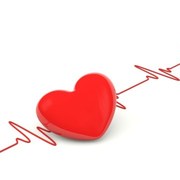 Photo: Getty Images
Photo: Getty Images
Sometimes, being number one isn’t a good thing. Unfortunately for women, heart disease is no longer a disease reserved only for the Type-A corporate male executives. Not only do women get heart disease, but it remains the number one killer of women.
According to the Mayo Clinic, more women die each year of heart disease than men. The higher death rate may be due in part to unique gender differences in heart disease symptoms and risk factors. While not meant to be an exhaustive list, we’ll take a look at closer look at some of the types of heart disease in women.
Coronary Heart Disease
Coronary heart disease, sometimes referred to as CHD or simply heart disease, is the most common form of heart disease. Affecting both men and women, CHD is a serious condition which involves a narrowing or blockage of the arteries leading in and out of the heart muscle.
Women generally develop CHD about 10 years later in life on average than men. As the arteries become blocked, blood flow becomes restricted, preventing the heart from delivering adequate supplies of oxygen to the rest of the body. This form of heart disease is a serious condition because it can lead to numerous heart-related complications, some of which may be life-threatening.
Complications from CHD include heart failure, arrhythmias, sudden cardiac arrest or SCA, heart attack, and death. CHD accounts for the majority of heart-related deaths in women. Women with migraines, especially migraines with auras, may be more prone to develop CHD.
Coronary Microvascular Disease
Coronary Microvascular Disease, or MVD, is a type of heart disease which recent research indicates is more common in women than men. Unlike CHD which affects the major heart arteries, MVD affects small arteries that surround the heart.
In persons with MVD, the small arteries either become damaged or diseased. Spasms or a tightening occurs because these small arteries do not relax properly.
It’s thought that menopause and the lower levels of estrogen may be a contributing factor to the development of this type of heart disease in women.
MVD can be life-threatening. In the past 30 years, overall deaths from MVD have dropped. The men have fared better than the women. Death rates for women with MVD have not dropped as significantly as they have for men. The standard tests for CHD may be a contributing factor in this since they do not detect MVD in women.
Broken Heart Syndrome
Yes, there really is a heart condition called broken heart syndrome! More common in women than men, broken heart syndrome is caused by “extreme emotional condition.”
Symptoms generally present following some type of extremely stressful situation. The stress can be physical or emotional.
Fortunately, this condition is generally reversible and most people can expect a full -- and speedy -- recovery. Because its symptoms are similar to a heart attack, with chest pain and shortness of breath, it may be initially misdiagnosed.
Unlike CHD, people with broken heart syndrome do not exhibit any blockage or narrowing of the coronary heart arteries and have no prior heart disease history. Broken heart syndrome is more common in women who are Caucasian and postmenopausal.
Sources:
What is Heart Disease? National Heart Lung and Blood Institute. 01 Nov 2009. http://www.nhlbi.nih.gov/health/health-topics/topics/hdw
Heart disease in women: Understand symptoms and risk factors. 12 Jan 2011. The Mayo Clinic.
http://www.mayoclinic.com/health/heart-disease/HB00040
Reviewed September 14, 2011
by Michele Blacksberg R.N.
Edited by Jody Smith





Add a CommentComments
There are no comments yet. Be the first one and get the conversation started!